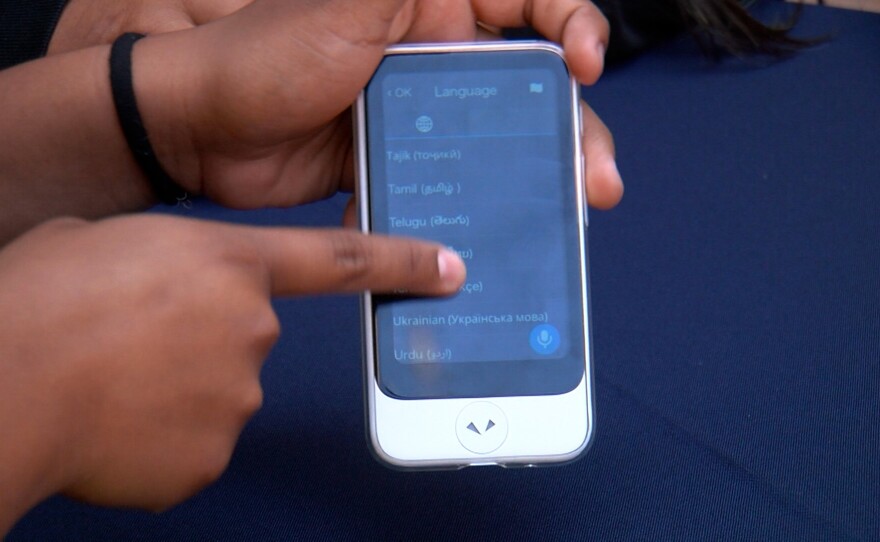Three high school teams from the San Diego Unified School District will advance to this year’s national Aspen Challenge finals in Colorado, next month.
The Aspen Institute is an international nonprofit organization that provides education and resources to students so they can research solutions to some of their community’s most critical problems. The institute holds competitions around the world, challenging teams to develop their strategies for issues ranging from immigration to homelessness and the mental health of children. The challenge came to San Diego for the first time this year.
Back in February, 150 students from 19 campuses across the county chose their topics and began the 10-week challenge, delivering their final presentations before a panel of expert judges earlier this month. They are supported by coaches and community mentors during the process.
The winning teams were from Madison and Mira Mesa high schools and the San Diego School of Creative and Performing Arts.

- Madison High School’s project “SPORK” created multiple pathways for reducing the consumption of single-use plastics in their community by improving the recycling habits of their peers through a public awareness campaign.
- Mira Mesa High School, team “SGWB (Student Guide to Well-Being)” established inclusive spaces for their peers to have honest conversations about mental health by designing a student-driven web platform filled with resources and community support.
- San Diego School of Creative and Performing Arts identified the major causes of absenteeism among their peers, including a lack of transportation access and unaddressed mental health concerns. Their solution, “LEO (Learning Excellence Outreach),” aimed to target both by adding buses to their school’s fleet and forging partnerships to bring psychology and social work graduate students to their schools to begin working with their student body.
The Voices United team from Crawford High School presented their own solution to chronic absenteeism, with a long list of data showing that the average chronically absent student has missed 28.5 days of school.

The Crawford team determined many students miss school simply because they can’t speak English.
Their strategy included the use of a pocket translator that works in 150 languages for immigrant students and their families.
“Because they don’t feel connected in school, like they can’t communicate, that could be a big problem. Imagine they give you homework (and) you don’t speak English. How are you going to figure that out when you can’t even communicate with your teacher?" said Jhoanna Duarte, 16, a sophomore with the Crawford team.

Dominic Medlin, 19, a Crawford senior added, “Parents and students need to communicate more so they can talk to each other in school and then at home.”
Voices United did not advance to next month's Aspen Ideas Festival. They were given an award for the best collaboration by a team.





